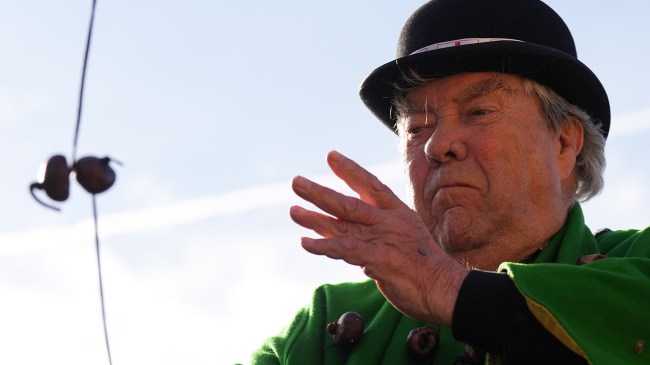
Getty Image
I’m going to assume most people reading this have never heard of the obscure British sport known as “conkers,” but it’s been thrust into the international spotlight courtesy of cheating accusations that have rocked its annual world championship to the core.
There are a number of sports that were initially dreamed up in the United Kingdom before taking the entire world by storm; we have the British to thank for golf, cricket, curling, and darts, and there’s an argument to be made they can also lay claim to soccer, rugby, and baseball (among others of questionable origin).
However, there’s another pastime that was invented in the United Kingdom that’s largely failed to catch on in other countries: conkers.
The game revolves around two competitors each armed with a chestnut (specifically a horse chestnut) tied to a string attempting to shatter the one belonging to their opponent before theirs breaks. The participants take turns dangling their chestnut while the other person takes a swing with theirs, and the first one to shatter the other is declared the winner.
Conkers has a history stretching back to the 19th century (the first documented game transpired on the Isle of Wight in 1848), and it boasts a fairly small but nonetheless devoted fanbase that gets the chance to celebrate the sport when the World Conker Championships are held in Northamptonshire, England on the second Sunday in October each year.
Some people spend decades attempting to walk away as the winner—including David Jakins, an 82-year-old who first competed in 1977 and was hoping to finally secure a title when he took part in the championships (where he also served as the top judge known as “King Conker”) for the 46th time over the weekend.
According to The Telegraph, Jakins was able to do exactly that by winning the men’s tournament in dominant fashion, as he dispatched the opposition in the quarterfinal, semis, and championship round with a single hit (an unlikely but not impossible feat).
However, things took a turn when Jakins was searched in the wake of the victory and found in possession of a steel chestnut that was painted brown to resemble the real thing—a discovery that quickly led to him being accused of cheating to win.
Jakins says he only had the metal chestnut on him as a joke and denied using it during the competition, but there were also questions raised about his involvement in the preparation of the chestnuts for the tournament (there’s speculation he marked chestnuts—which are drawn from a bag—that appeared to be sturdier in the hopes of gaining an edge).
A spokesman for the World Conker Championships said they will be conducting a formal investigation into the matter in the hopes of getting to the bottom of things.